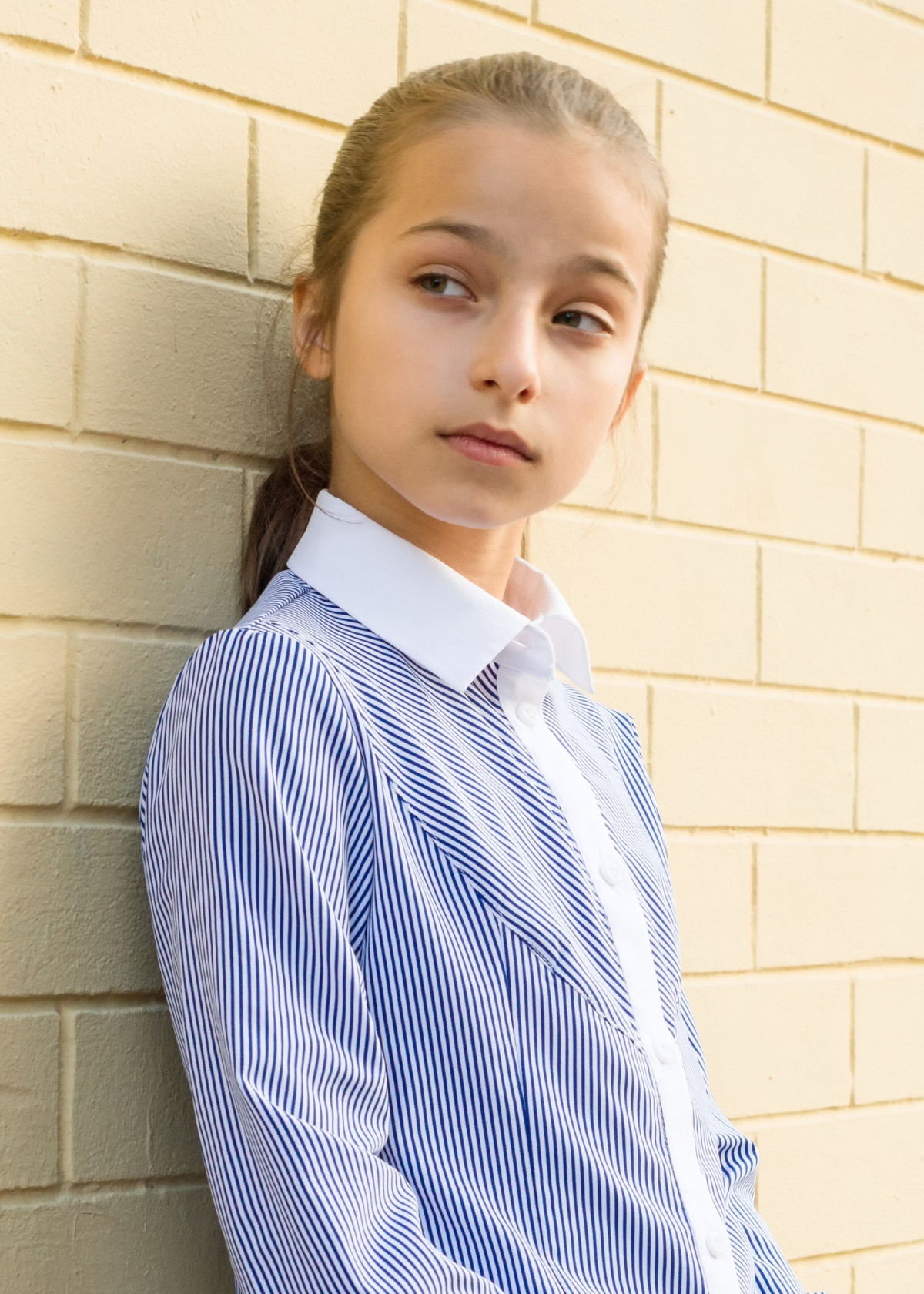Hair loss can be a worrying concern for any 13-year-old girl, creating insecurities and lowering self-esteem. In fact, hair loss is not uncommon in teenagers due to various reasons such as hormonal imbalances or malnutrition.
In this article, I will provide practical tips and information about how a young teenager can tackle hair fall effectively. Let's embark on this worthwhile journey to healthier hair.
What Causes Hair Loss in Teenagers?
Hair loss in teenage girls can be a distressing experience, but by understanding the common causes and debunking myths, it's possible to take proactive steps toward prevention.
Let's take a look at the common causes of hair loss and thinning hair during teenage years.
Common Causes and Contributing Factors

Hair loss in teenage girls often results from a variety of sources. Genetics plays a major role, as some girls may be more predisposed to hair fall than others. Certain medical conditions like polycystic ovary syndrome, thyroid disease, ringworm of the scalp, and alopecia areata also contribute significantly to the problem.
Tight hairstyles can put immense strain on hair roots and lead to premature breakage or thinning over time. Behavioral factors such as trichotillomania (compulsive hair-pulling) can exacerbate the issue.
Malnutrition is another key factor; an inadequate diet deprives your body - and, by extension, your hair - of the essential nutrients it needs to thrive. A healthy diet is one of the main solutions to prevent hair loss in teens.
Additionally, another cause of hair loss in teenagers is the use of birth control pills.
This combination of genetic predisposition (mostly in male pattern baldness), underlying health issues, behavioral factors, and poor nutrition creates a perfect storm for unwanted hair loss in adolescents.
Debunking Hair Loss Myths
Many myths surround hair loss, and it's important to separate fact from fiction. Contrary to popular belief, washing your hair frequently does not cause hair loss. In fact, keeping your scalp clean and healthy can promote hair growth.
Another myth is that wearing hats or using hair products leads to baldness. While excessive use of certain styling products can damage the hair shaft, causing breakage, they don't directly cause permanent hair loss. Still, it is better to keep lose hair styles and not too tight.
It's also a misconception that only older adults experience hair loss - teenagers are prone to it, too. Understanding the true causes of teenage hair loss will help debunk these myths and guide you toward effective solutions.
Recognizing Hair Loss Triggers

Teenage girls may experience hair loss due to various triggers. One common trigger is tight hairstyles, such as ponytails or braids, which can cause undue stress on the hair follicles and lead to breakage.
Another trigger is trichotillomania, a compulsive disorder where individuals pull out their own hair. Hormonal imbalances, such as those associated with polycystic ovary syndrome, can also contribute to hair loss in teenage girls.
Additionally, certain medical conditions like thyroid disease and lupus can be underlying triggers for hair loss. It's important for teenagers to recognize these potential triggers so they can take steps to address them and prevent further hair loss.
Seeking Medical Advice for Teenage Hair Loss
If hair loss persists or is accompanied by other concerning symptoms, it is important for a 13-year-old girl to seek medical advice.
When to Take Action?
If you notice excessive hair loss in your teenage girl, it is important to take action promptly. Hair loss can be a sign of an underlying medical condition or nutritional deficiency.
If the hair loss is sudden, widespread, or accompanied by other symptoms like fatigue or changes in weight, it's crucial to seek medical advice as soon as possible. Consulting with a healthcare professional will help determine the cause of the hair loss and guide you toward appropriate treatment options.
Remember, early intervention can make a significant difference in managing and preventing further hair loss for your teenage girl.
Possible Underlying Medical Conditions
Hair loss in teenage girls can sometimes be a sign of underlying medical conditions that need to be addressed. These conditions may include thyroid disease, diabetes, and certain infections.
It's important to rule out these causes because treating the underlying condition can help prevent further hair loss. If you notice excessive hair fall in your teenage girl, it's advisable to seek medical advice from a healthcare professional who can assess her overall health and determine if there are any underlying medical conditions contributing to the hair loss.
Remember, early detection and proper treatment are key to managing hair loss effectively.
Taking Control of Nutrition and Lifestyle

To prevent hair loss, it is important for teenage girls to maintain a balanced diet consisting of nutrient-rich foods and to practice proper hair care techniques such as avoiding heat styling tools and limiting the use of harsh chemicals on their hair.
Importance of a Balanced Diet
A balanced diet plays a crucial role in maintaining healthy hair for teenage girls. Nutritional deficiencies can weaken the hair strands and contribute to hair fall. By consuming a variety of nutrient-rich foods, such as fruits, vegetables, whole grains, lean proteins, and healthy fats, teenagers can ensure that their bodies receive the essential vitamins and minerals needed for strong and vibrant hair.
Specifically, nutrients like vitamin A, biotin, iron, zinc, and protein are vital for promoting hair growth and preventing excessive shedding. Incorporating these nutrients into their daily meals can help teenage girls maintain a healthy scalp and minimize the risk of hair loss.
Preventing Hair Loss Through Proper Hair Care
Proper hair care plays a crucial role in preventing hair loss in teenage girls. Taking good care of your hair involves gentle brushing and avoiding tight hairstyles that can pull on the roots and cause breakage.
It's important to use a wide-toothed comb or a brush with soft bristles to reduce damage. Regular washing with mild shampoo and conditioner helps keep the scalp clean and nourished while avoiding excessive use of heat styling tools like straighteners or curling irons can minimize damage as well.
Additionally, protecting your hair from harsh environmental factors such as sun exposure, chlorine, and pollution is essential for maintaining its health. By following these simple yet effective practices, you can promote healthy hair growth and prevent further hair loss in adolescence.
Managing Stress and Mental Health
Stress and mental health play a significant role in the overall well-being of teenage girls, including hair health. High levels of stress can contribute to hair loss or exacerbate existing hair loss issues.
It's important for 13-year-old girls to prioritize managing their stress and taking care of their mental health to promote healthy hair growth. This can be done through various strategies such as practicing relaxation techniques like deep breathing or meditation, engaging in regular physical activity, getting enough sleep, and seeking support from trusted friends, family members, or professionals if needed.
Taking proactive steps to manage stress and prioritize mental well-being can have a positive impact on both hair health and overall quality of life.
Treatment Options for Hair Loss in Teenage Girls

Consulting with a dermatologist is crucial for finding the right treatment options to address hair loss in teenage girls. From natural remedies and supplements to advanced treatments like platelet-rich plasma and minoxidil, there are various options available that can help restore hair growth.
Discover more about these treatment options and find what works best for you.
Consulting With a Dermatologist
Consulting with a dermatologist is crucial when dealing with hair loss in teenage girls. Dermatologists are medical professionals who specialize in diagnosing and treating conditions related to the skin, hair, and nails.
They have the expertise to identify the underlying causes of hair loss and develop a personalized treatment plan. By conducting thorough examinations and analyzing medical history, dermatologists can determine if there are any contributing factors, such as hormonal imbalances or underlying medical conditions like thyroid disease or alopecia areata.
Additionally, they can recommend effective treatments such as specialized shampoos or topical medications to promote hair growth. Seeking guidance from a dermatologist is essential for properly addressing teenage hair loss and restoring healthy hair growth.
Natural Remedies and Supplements
Teenage girls experiencing hair loss may find relief in natural remedies and supplements. While these options may not work for everyone, they offer potential benefits in promoting healthy hair growth.
One popular natural remedy is the use of essential oils like lavender or rosemary, which can be massaged onto the scalp to stimulate blood flow and encourage hair follicle health. Additionally, dietary supplements like biotin or vitamin E can help improve hair strength and thickness.
It's important to note that natural remedies and supplements should be used under the guidance of a healthcare professional to ensure safety and effectiveness.
Advanced Treatments (Platelet-Rich Plasma, Minoxidil)
Platelet-rich plasma (PRP) and minoxidil are two advanced treatments that can be effective in treating hair loss in teenage girls. PRP involves using the patient's own blood to extract platelets, which are then injected into the scalp to stimulate hair growth.
Minoxidil, on the other hand, is a topical medication that can be applied directly to the scalp to promote hair regrowth. Both treatments have shown promising results in reducing hair loss and promoting new hair growth.
One potential side effect of Minoxidil is unwanted hair growth. So, the doctor may not give you a very small dose for patchy hair loss.
While these treatments may not work for everyone, they offer alternative options for those seeking more aggressive approaches to combat teenage hair loss.
It is important to consult with a dermatologist or healthcare professional before beginning any advanced treatment to ensure proper diagnosis and guidance throughout the process.
Frequently Asked Questions
Hair fall can be worrying at any age, but dealing with it as a teenager can feel especially stressful. However, there are steps a 13-year-old girl can take to reduce hair shedding and promote healthy hair growth.
These FAQs will provide tips to stop hair fall safely and effectively during the adolescent years.
What causes hair fall in a 13-year-old girl?
Hair loss in teenage girls can be due to many causes like alopecia, temporary or permanent hair loss, tight hairstyles, and medical causes such as thyroid disease or diabetes.
How does nutrition affect hair fall in teenage girls?
Lack of healthy food can cause nutritional deficiencies, leading to hair thinning and even severe hair fall in young girls.
Can certain habits lead to more hair loss for adolescent girls?
Yes, habits like trichotillomania (compulsive pulling out of one's own hair) can worsen the problem of teenage girls experiencing hair fall.
Is there any way to prevent and manage this kind of issue?
There are ways like maintaining proper nutrition & following specific care routines that promote natural remedies and help prevent measures against avoidable triggers with tips designed just for young teenagers' needs.
Can infections lead to more substantial issues related to a teenager's scalp health?
Indeed. Some infections can exacerbate, causing damage, making it crucially important to prevent further complications by pursuing immediate remedial actions toward recovery.
Does the psychological factor play an influential role in how many strands a girl might lose daily?
Absolutely. Psychological factors such as stress could substantially contribute towards this common condition faced by many adolescents worldwide, affecting their overall physical appearance, majorly impacting self-confidence levels significantly at times, necessitating professional intervention where required depending upon individual case severity.
Conclusion
To stop hair fall, a 13-year-old girl can take control of her nutrition and lifestyle by maintaining a balanced diet and practicing proper hair care. Seeking medical advice is crucial to identify any underlying conditions that may be causing the hair loss.
Treatment options such as consulting with a dermatologist or trying natural remedies can also help in managing and preventing further hair loss. Taking proactive steps now will support healthy hair growth for years to come.
Read More About Other Related Topics Of Your Interest






